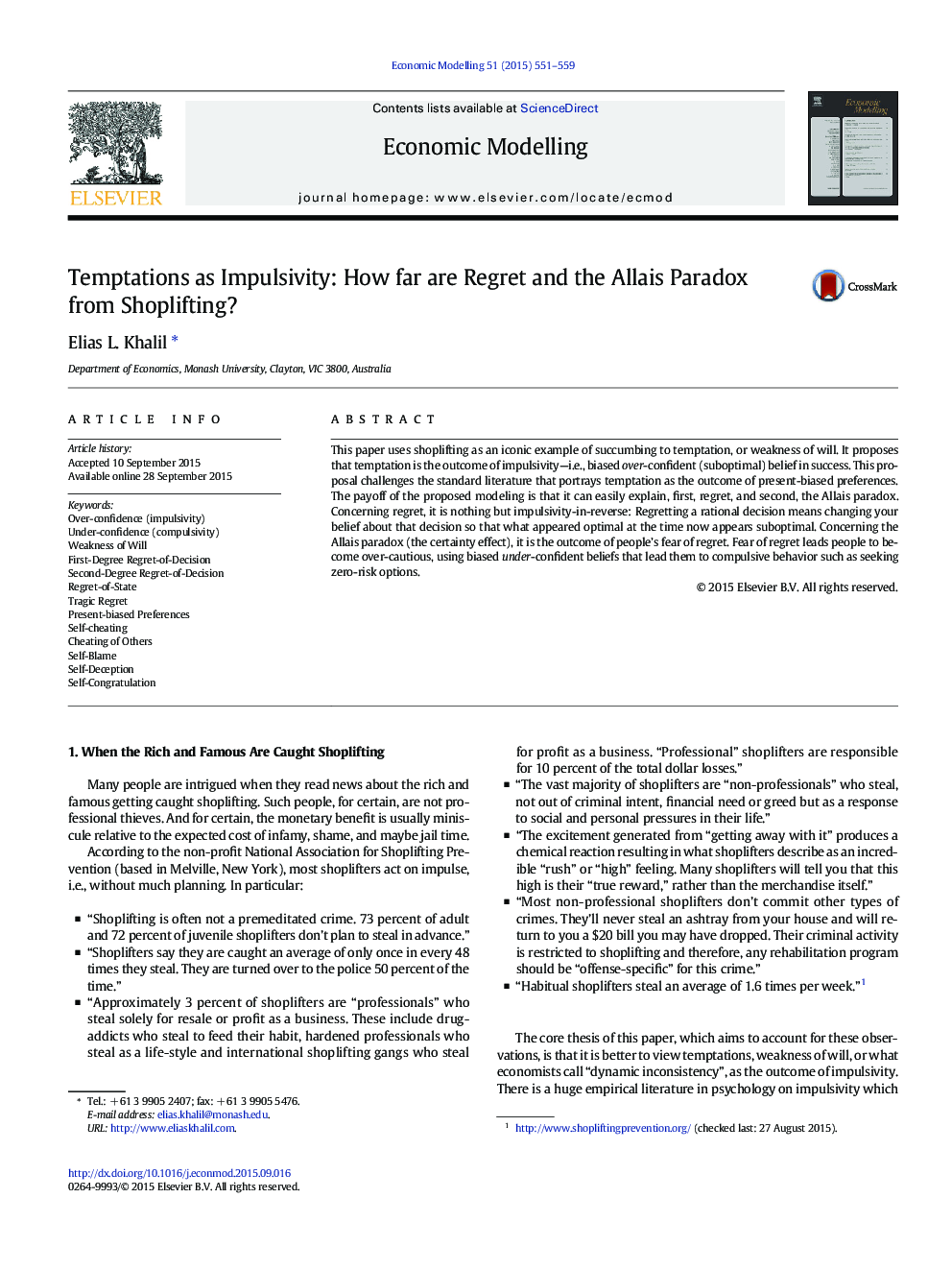| Article ID | Journal | Published Year | Pages | File Type |
|---|---|---|---|---|
| 5053749 | Economic Modelling | 2015 | 9 Pages |
Abstract
This paper uses shoplifting as an iconic example of succumbing to temptation, or weakness of will. It proposes that temptation is the outcome of impulsivity-i.e., biased over-confident (suboptimal) belief in success. This proposal challenges the standard literature that portrays temptation as the outcome of present-biased preferences. The payoff of the proposed modeling is that it can easily explain, first, regret, and second, the Allais paradox. Concerning regret, it is nothing but impulsivity-in-reverse: Regretting a rational decision means changing your belief about that decision so that what appeared optimal at the time now appears suboptimal. Concerning the Allais paradox (the certainty effect), it is the outcome of people's fear of regret. Fear of regret leads people to become over-cautious, using biased under-confident beliefs that lead them to compulsive behavior such as seeking zero-risk options.
Related Topics
Social Sciences and Humanities
Economics, Econometrics and Finance
Economics and Econometrics
Authors
Elias L. Khalil,
